 The International Monetary Fund is back on the scene to ‘help’ Pakistan overcome its financial crisis in less than four years after the claim that the government had smashed the begging bowl, never to return to the fund.
The International Monetary Fund is back on the scene to ‘help’ Pakistan overcome its financial crisis in less than four years after the claim that the government had smashed the begging bowl, never to return to the fund.
Barring a couple of officially dubbed ‘minor’ differences on defence spending cuts, the policy framework for the proposed package is almost final, and it is hardly a matter of days before the disputed matters are settled and prime minister’s advisor on finance Shaukat Tareen uses his ‘last option’ to raise capital from the fund for balance of payments support.
IMF’s macroeconomic stabilisation policy prescription and harsh conditions attached to its funding are immensely unpopular because these invariably involve tax hikes, expenditure (including subsidies) cuts, and exchange rate flexibility (or currency devaluation).
Pakistan’s proposed ‘home-grown’ economic stabilisation package discussed with the fund in Dubai during the last week of October pledges to follow these ‘policy guidelines’ to ensure fiscal discipline.
The package commits Pakistan to reduce fiscal deficit to 4.3 from 7.4 per cent, raise tax to GDP (gross domestic product) ratio to 15 per cent from the existing 10.5 per cent in five years, maintain a flexible exchange rate, achieve zero net borrowings from the central bank by cutting subsidies this year, and involve private sector in the public sector development programme (PSDP).
The successful conclusion of the deal is also feared to result in interest rate hike as money supply is further tightened under IMF pressure.
But could the fund be avoided? We could if the government hadn’t lost its handle on the economy during the last few months, experts say. But not now as the economy is in distress and macroeconomic fundamentals are slipping by the day. Foreign-currency reserves of the central bank (exclusive of foreign-currency accounts of $3.2 billion held by the banks) are down to $3.71 billion - equivalent to imports of just five weeks, from life high of $14.24 billion a year ago.
The rupee has lost 25 per cent in value to a dollar since the beginning of the year. Fresh foreign capital inflows have dried up or slowed down. Tareen estimates that $6-10 billion had been taken out of the country in last six months. Price inflation is running at 30-year high of 25 per cent.
The government estimates that it needs $3.5 billion to $4.5 billion in next 30 days to cover its balance-of-payments obligation and rebuild foreign-currency reserves. But Pakistan’s ‘friends’ have declined its request for hard cash in the short-term to rescue its economy.
Tareen says our international friends want the IMF’s endorsement of our economic policies before they move to bail us out. They want their money well spent under the watchful eyes of the fund.
“We’re in a situation where money has to come from somewhere - even if it has to be IMF - to end turmoil in the markets and restore confidence in the economy,” Pakistan’s former chief economist Pervez Tahir argues.
“Why didn’t the government move when we still had comfortable level of foreign exchange is a mystery to me. Either the policy makers didn’t see the oncoming cash flow crisis, or they sat on their haunches waiting for a miracle to happen,” Shahzad Azam Khan, a businessman, remarks.
“Pressures on the economy could be mitigated if government had realised seriousness of the situation, put together a package of credible economic policies and sought financial bailout from our friends well in time. But the policy-makers missed the bus assuming the world couldn’t afford to let us down because of our strategic location and us being the frontline state in the terror war,” he says.
Pakistan is likely to seek sizeable funding from the fund, far greater than its quota of $1.6 billion.
Tareen says the fund could give Pakistan $3-5 billion immediately to improve cash flow and cover balance-of-payments obligations, and $8-10 billion in next two years. That is precisely what he requires in the short to medium-term to steer the economy out of current crisis and restore stability to the markets.
“In the short-term, the IMF funding and endorsement of government’s policies will improve things to some extent by ending uncertainty and confusion about our ability or lack of it to meet our liabilities and easing pressure on the rupee, halting further capital flight,” Shahid Kardar, an economic expert, insists.
“Moreover, it’d send a positive message to the global financial markets and give confidence to the donors that we’re serious about exercising fiscal discipline,” he says.
But the business remains wary of and uneasy at the prospects of IMF’s return, fearing its rigid and harsh conditions could slow down economic growth.
Apart from expenditure cuts and tax hikes, the businesspersons fear another round of monetary tightening and currency devaluation when the economy needs just the opposite.
A Citigroup market analysis report estimates GDP growth to contract to 3.7 this year from 5.8 per cent last fiscal as it suspects the fund to put pressure on government to ease spending.
“The IMF funding is unlikely to revive long-term investment, which we direly need at the moment. Possible tax and interest rate hikes, expenditure cuts and currency devaluation will work against long-term investment and growth,” says Tahir.
Textile manufacturer Akber Sheikh says the so-called package shows that government had loyally ‘owned’ IMF’s prescription and is selling it to the nation as homegrown formula.
“We don’t disagree with the direction of the policies. But the definite timelines that IMF is going to demand for achieving these targets could jeopardise our growth prospects,” he insists.
“The fund is also going to spell out its priorities, listing the sequence of reforms the government is promising to undertake. That is where the problem lies and that is where your ability to take independent decisions in accordance with your own conditions and ground realities is curtailed and difficulties compound,” Sheikh argues.
“If interest rate is hiked, new taxes imposed and currency devalued it would create serious problems for the business and the industry by raising the cost of doing business. That would bring the business down,” he says.
Almas Haider, an auto parts manufacturer, considers the fund prescription of fiscal contraction a sure recipe of disaster for the industry in the existing domestic and global economic environment.
“If the credit cost is raised further to curb demand, for example, it will also squeeze production,” he says.
“Inflation has to come down and current account gap to narrow in next several months anyways as the global oil and food prices are falling on the back of fears of global economic slowdown. Our economy also has to deflate over time. At the moment we need to reduce the credit cost for the production sector,” Haider contends.
He also warns against tax hikes for production sector because it would also adversely affect growth at this moment.
“New taxes should be imposed on consumption or income from speculative activities and not on industry or production. We need a democratic economy where everyone pays his taxes,” Haider says.
The advisor has also indicated plans to tax agriculture, real estate, and other hitherto untaxed sectors to increase revenues
If tax hikes and monetary tightening is to push the cost of doing business, the spending cuts - unless made in the unproductive expenditure, and elimination of food and energy subsidies is going to hit ordinary people facing high price inflation, and possibly increase poverty, vulnerability and unemployment.
“The fund is ideologically against subsidies, which we need badly to support the poor suffering under high price inflation. We shall see some pro-poor programmes like the federal government’s Benazir Income Support Programme and Punjab’s two-rupee roti initiative, but there won’t be enough money for them (once the IMF is here),” he says.
Officials acknowledge the popular concerns relating to harsh IMF conditions and timelines for their implementation. But they claim the fund conditions and timelines this time are not going to be as rigid or harsh as before.
“Let me say at this stage that our international friends and allies in terror war are aware that harsh IMF conditions could create a lot of problems for our people and government, as well as our efforts against terrorism. Even President Zardari has conveyed it to our western friends,” a senior federal finance ministry official says.


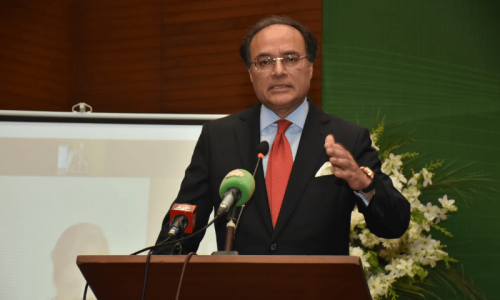














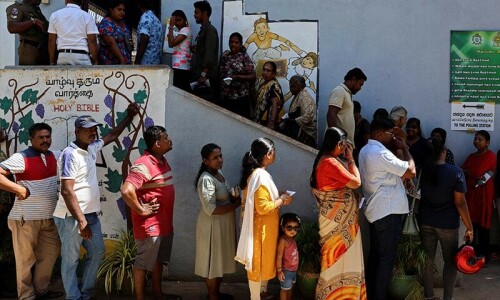
















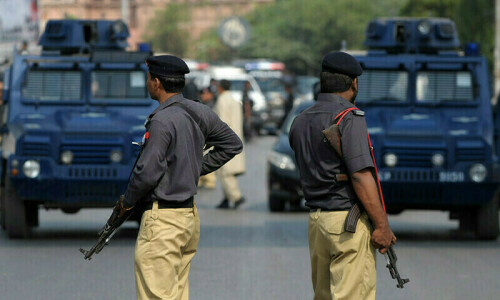









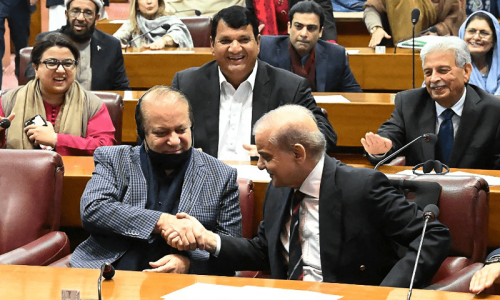
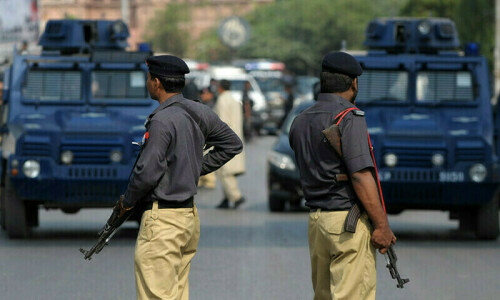


Dear visitor, the comments section is undergoing an overhaul and will return soon.